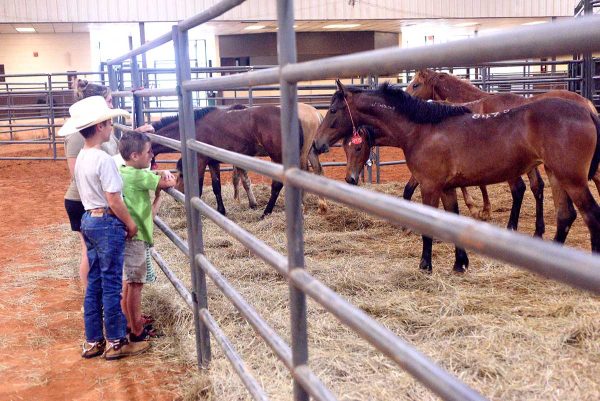Plan to expand sales tax base not palatable for Oklahoma lawmakers
Published 7:15 am Wednesday, May 24, 2017
OKLAHOMA CITY — Observers say a highly touted plan that could have generated nearly a billion dollars in revenue by taxing new services has proven too toxic for Oklahoma lawmakers to stomach.
Gov. Mary Fallin’s plan, which proposed ending the sales tax exemptions on more than 160 services like haircuts, pet grooming and doctor visits, has largely failed to gain traction, said David Blatt, executive director of the Tulsa-based Oklahoma Policy Institute think tank.
In the final weeks of session, lawmakers tossed around the idea of taxing cable television and wind manufacturing in an effort to ease the state’s $878 million shortfall, but those measures also seem to have stalled, he said.
“I think (lawmakers) just decided that the issue has become toxic for now, and they’ve instead gone for other options,” Blatt said.
Officials estimated the expansion could have raised around $840 million.
Blatt said he believes Fallin may have miscalculated by pitching such a broad swath of services rather than focusing on smaller portion because the plan faced “pretty strong pushback.”
The idea of expanding the tax base proved so controversial that — just days after Fallin proposed the plan — fellow Republican Lt. Gov. Todd Lamb abruptly announced he had quit Fallin’s cabinet where he had served as the state’s small business advocate.
“(It was) clearly more than anyone had an appetite for,” Blatt said. “There was enough in there to alienate everybody, and so I think from that point on there was maybe a reluctance to be associated with any part of the plan, even though I think most people recognize that we will eventually have to tax more services as we move to service-based economy.”
Fallin first unveiled the idea during her State of the State address earlier this year, arguing that Oklahoma’s economy has shifted from manufacturing and sales to more service-oriented. Fallin said the way the state imposes and collects revenue has become outdated and needs to be modernized.
Widening the sales tax base, she said, would have allowed lawmakers to eliminate the state’s sales tax on groceries.
Fallin’s office did not respond Tuesday to a request for comment.
Capitol observers note that expanding the sales tax base could have been one of the easier votes to push through logistically. It would have only taken a majority vote rather than three-quarters of lawmakers, the benchmark for most revenue-raising proposals.
State Rep. Scott Martin, R-Norman, said lawmakers discussed Fallin’s proposal, but ultimately decided not to include it in the plans to generate new revenue. In the last week of session, the idea appeared all but dead, he said.
“When you start talking about taxing services, it’s going to have a very real impact on people,” he said. “And so I just don’t think it ever got the traction that some of the other proposals out here had.”
However, House Minority Leader Scott Inman, D-Del City, said he believes the plan gained no traction because it was authored by Fallin.
“There seems to be a distaste for any ideas that she proposes from their (Republican) caucuses,” he said.
Inman said he pitched taxing some services that don’t directly impact the middle class during budget negotiations with Republican leaders, but there was little interest.
“The Senate and House Republicans continue to push back on those, saying that they have no appetite for it, and so you’d have to ask them why they don’t want to other than the fact that Gov. Fallin initially proposed it and maybe they just don’t like her,” he said.
Spokesmen for House Speaker Charles McCall, R-Atoka, and Senate President Pro Tem Mike Schulz, R-Altus, did not respond to a request for comment.
Inman’s House Democrats also unveiled their own plan to tax to more than three dozen different services — including fur storage, armored cars, motion picture and video production and cemetery subdividers and developers — as part of the caucus’ overall plan to balance the budget.
Inman said Democrat support for their proposed tax expansion is contingent on those exemptions being part of a bigger revenue-generating package.
Janelle Stecklein covers the Oklahoma Statehouse for CNHI’s newspapers and websites. Reach her at jstecklein@cnhi.com.


